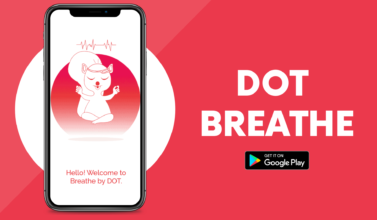Happiness is said to be a measure of your subjective well-being; it’s a state of mind.
Depression, stress, anxiety, loneliness and other mental health problems are on the rise. The world we live in today is vastly different to the world known to our fathers and forefathers. It is important to look at the whole picture which includes various factors such as evolution of technology, globalization, changes in social stratum, migration, from communal living to individuality and so on and so forth.
It is equally important to look within and truly understand the impact of these external changes to our internal well-being; our state of mind.
Reflect Inwards
Imbalances in different chemicals in the brain results in mental health problems that are becoming more and more prominent. It is important to understand what these chemicals are and the effect they have on us.
Dopamine plays an important role in controlling our drive to seek rewards and feel ‘good’. Dopamine pathways construct our neural reward system. It is a precursor to Norepinephrine. Dopamine is also a highly addictive chemical, it is what causes that feeling of ‘addiction’ to drugs, alcohol etc.
Norepinephrine helps our body recognize stressful situations and respond to them. They mask physical pain and this is the endurance chemical, commonly experienced as the ‘runner’s high’. It too, is a feel-good chemical.
Serotonin helps with important functions such as mood, appetite, sleep etc. It is also a chemical that instills a sense of community, pride and belonging. It is the chemical that creates the feeling of a bond between a proud parent and a child who is graduating, a coach and a team that is playing, a leader and his/her followers etc.
Oxytocin is a powerful hormone that acts as a neurotransmitter in the brain. It regulates social interaction and sexual reproduction. It also plays a role in maternal-infant bonding, sense of generosity etc. When we hug or kiss a loved one, oxytocin levels increase; hence, oxytocin is often called the feel-good ‘love’ hormone.
Cortisol is the stress hormone. It is the feeling of stress and anxiety- the first stage of fight or flight response in our bodies. Cortisol acts as a backup energy reserve so that the brain and body can continue to function. It blocks all other essential systems as well as inhibits Serotonin and Oxytocin.
Let’s talk Depression
Let’s take a look at depression. Depression is linked to ‘imbalances’ in the brain, specifically with the chemicals such as Serotonin,Norepinephrine, and Dopamine. These chemicals are known as ‘neurotransmitters’ and it’s the message that goes from one brain cell (neuron) to another.
Research suggests that a decrease in the production of serotonin can cause depression in some people, and more specifically, a mood state that can cause some people to feel suicidal.
Another line of research has investigated links between depression and norepinephrine. Researchers suggest that people who are vulnerable to depression may have a norepinephrinergic system that doesn’t handle the effects of stress very efficiently.
People suffering from depression don’t get the same sense of pleasure from activities they liked before due to reduced levels of dopamine. This research article, Mediating Role of the Reward Network, discusses the dopamine pathway association with depression symptoms in patients with major depressive disorder.
Antidepressant medications, which are used to treat the symptoms of depression, are known to act upon a particular neurotransmitter and it’s receptor. Unilateral support of one of these chemicals can cause compensatory decrease in other chemicals. Which is why medication may not always be the answer.
Reflect Outwards
Majority of individuals move out of their houses (and sometimes countries) in their twenties. In a new setting, away from the familiarity of friends and family, social anxiety and loneliness are bound to set in. Loneliness is a rising concern, as explained by Alice G. Walton, in ‘Loneliness May Be The Biggest Threat To Mental Health Today’, “We’re deeply social creatures, and evolved to be so. We lived in groups for many thousands of years—living isolated lives as we do nowadays goes counter to our innate psychological needs. Many people live hundreds or thousands of miles away from their families, and most simply don’t have the same kinds of village as humans evolved to live in, let alone raise kids in.”
Looking at it from a biological perspective, loneliness would result in low levels of serotonin which would result in depression overtime.
Similarly, with the evolution of technology and exponential growth of the internet, work life is becoming more and more competitive. Job security and vulnerability are rising concerns at workplaces. As a result, work environments have become highly stressful. Stress produces cortisol. Consistent high stressful situations (high cortisol levels) blocks serotonin and oxytocin, which eventually will cause the neurons (brain cells) that produce serotonin to die off and overtime will result in decreased serotonin levels, which in turn is leading to depression.This research study links depression to brain circuitry.
Let’s talk Happy
It is important to understand that although medication may work for a few, there is no magic pill to ‘cure’ it. It is merely treating the symptoms of depression and creating a dependency overtime.
Once we understand what is happening inside of our brains, we can try different solutions to tackle the problem. Patience and perseverance are be key factors.
It is important to have a sense of community- to feel like you belong. It may be in a friend, a family member, or a support group- it is important to have some form of support system for yourself. This in turn, will release Serotonin and Oxytocin, and overtime can offset depression. This Harvard Research, after following surviving crimson men for 80 years, constituting to one of the world’s longest studies of adult life, discusses how communal living results in happier, healthier and longer lives.
There is a reason why gratitude practices are popular in all religions and apart of meditation techniques. It is a reminder that you are valued and have a lot to value in your life. It is good practice to make a list of achievements from the past and reflect on that regularly- once again this boosts Serotonin.
We are visual creatures, so it is important to set tangible goals and to make to-do lists. There is a biological reason to keep a to-do list; every time you complete and cross off a task, it will give you a small burst of dopamine. Overtime practicing endurance (persistence) and achieving that goal will result in more dopamine and norepinephrine, which equals more happiness.
Neuroplasticity refers to the brain’s ability to form new neural connections throughout life. Neurons can adjust their responsiveness and grow new connections, based on external stimulants. Or simply, they can even be reprogrammed to respond differently. We need to actively rewire our brain and create the responses we desire, for it to become the norm.
This World Mental Health Day, let’s consciously create and achieve a state of mind to be happy!


